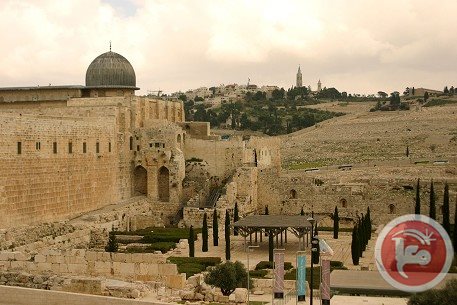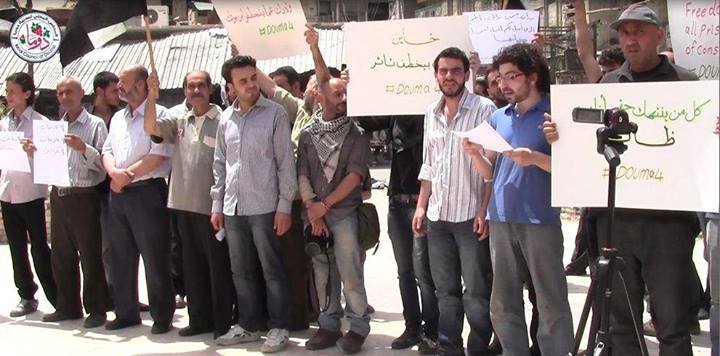Features
THE NEW PKK
Unleashing Social Revolution in Kurdistan

by Rafael Taylor, ROAR Magazine
As the prospect of Kurdish independence becomes ever more imminent, the Kurdistan Workers' Party transforms itself into a force for radical democracy.
Excluded from negotiations and betrayed by the 1923 Treaty of Lausanne after having been promised a state of their own by the World War I allies during the partitioning of the Ottoman Empire, the Kurds are the largest stateless minority in the world. But today, apart from a stubborn Iran, increasingly few obstacles remain to de jure Kurdish independence in northern Iraq. Turkey and Israel have pledged support while Syria and Iraq’s hands are tied by the rapid advances of the Islamic State (formerly ISIS).
With the Kurdish flag flying high over all official buildings and the Peshmerga keeping the Islamists at the gate with the assistance of long overdue US military aid, southern Kurdistan (Iraq) join their comrades in western Kurdistan (Syria) as the second de facto autonomous region of the new Kurdistan. They have already started exporting their own oil and have re-taken oil-rich Kirkuk, they have their own secular, elected parliament and pluralistic society, they have taken their bid for statehood to the UN, and there is nothing the Iraqi government could do—or the US would do without Israeli support—to stop it.
The Kurdish struggle, however, is anything but narrowly nationalistic. In the mountains above Erbil, in the ancient heartland of Kurdistan winding across the borders of Turkey, Iran, Iraq and Syria, a social revolution has been born.
GAZANS FACE STRUGGLE ON WAR CRIMES CLAIMS

from IRIN
JERUSALEM — Speaking on Aug. 5 after a meeting at the International Criminal Court (ICC) in The Hague, Palestinian foreign minister Riyad al-Malki was unequivocal. "Everything that has happened in the last 28 days is clear evidence of war crimes committed by Israel, amounting to crimes against humanity," he said, referring to the ongoing Israeli assault on Gaza. "There is no difficulty for us to show or build the case. [The] evidence is there… Israel is in clear violation of international law."
His comments echoed those made by senior international figures. Speaking after the bombing of a UN school, UN Secretary-General Ban Ki-moon called the attacks a "gross violation of international humanitarian law," while UN High Commissioner for Human Rights Navi Pillay has said there is a "strong possibility" of war crimes.
According to the latest count from the UN, Israel's Operation Protective Edge against Hamas and other militants in Gaza has claimed the lives of more than 1,800 Palestinians, 72% of whom were civilians. The death toll on the Israeli side is 67: 64 soldiers, two civilians, and one foreign national working in Israel.
Yet while the accusations of abuses against Israel have been loud, proving them will be a lot more challenging. Political, legal and practical limitations, experts say, mean the Palestinians will struggle to use either international or Israeli courts to pursue their claims.
UNDERSTANDING SYRIA'S FOUR-FRONT WAR

by Christopher Phillips, Middle East Eye
As the world media has been preoccupied with the Gaza conflict, Syria has just had the bloodiest week of its civil war. Some 1,700 were killed in seven days, with a renewed push from Islamic State (IS) accounting for much of the violence.
Confident after its victories in Iraq and deploying newly looted military hardware, IS's sudden charge and the reaction to it in Syria and outside, has tilted the conflict on its axis, challenging various assumptions and shifting dynamics. Increasingly, we can talk about a war being fought on four overlapping fronts by four groupings of actors: the Assad government, IS, the mainstream rebels and the Kurds.
PRACTICING PEACE IN WARTIME
Israelis and Palestinians Who Refuse to Be Enemies

from IRIN
JERUSALEM — The sixty families are determined not to be driven apart by even the most extreme circumstances; the sign pointing to a bomb shelter is written in three languages—English, Arabic and Hebrew. Equidistant from Tel Aviv and Jerusalem on a hilltop near the border with the West Bank, residents of the village called Neve Shalom and Wahat al-Salam (Oasis of Peace in Hebrew and Arabic) choose to live side by side in Israel's only truly mixed community.
The 30 Israeli Jewish and 30 Palestinian families have resolved not to let the latest hostilities turn neighbor against neighbor. "These times of heightened violence actually really bring the village together," said Bob Mark, a Jewish Israeli who taught at Neve Shalom's primary school for 23 years. "You'll find the village demonstrating together," he added. While residents have differing views on the solution to the country's woes they all agree that the killing must stop.
SELECTIVE INTERNATIONALISM
Gaza and Syria Reveal an Activist Disorder

by Nott George Sabra
Some 80,000 people rallied in London last weekend to support the Palestinians of the Gaza Strip whom Israeli forces are slaughtering daily by the dozens. This commendable display of internationalism—defined as unconditional solidarity with the oppressed and the exploited without regard to borders, colors, or creeds—was repeated all over the US and Europe as thousands turned out at similar marches, even defying a government ban in Paris. Bringing this street sentiment into the halls of power, Chile's parliament voted to suspend trade talks with Israel.
This vigorous internationalist grassroots response to Israel's murderous campaign is exactly what revolutionary Syrians called for from activists abroad since 2011 in response to the Syrian regime's adoption of Israeli tactics like collective punishment and bombing, shelling, and demolishing entire civilian neighborhoods—but to no avail. The regime of Bashar al-Assad has killed over 2,000 Palestinians and displaced far more Palestinians than Israel has and yet the only time organizers of London's Gaza protest, the Stop the War Coalition, ever took action over Syria was to save said regime from airstrikes and to stop the imposition of a no-fly zone—the only way to end the regime's barrel bomb attacks. After they succeeded, Stop the War Coalition organized a "victory" march to brag that they had stopped the war in Syria!
BRAZIL'S DEFEAT: BEYOND FOOTBALL
The High Cost of Hosting FIFA's World Cup

by Andrew Kennis, Americas Program
RIO DE JANEIRO — While smoking his tobacco pipe in front of his small cinder-block home toward the top of his native Vidigal, a sprawling favela overlooking some of Rio de Janeiro’s most luxurious neighborhoods, Jamil Jorge offered his thoughts on Brazil hosting the World Cup in the midst of the tournament: "The World Cup only benefits people and institutions with money, not people like me."
Jamil had just finished meditating during a breezy ocean-side night at one of the many stunning lookouts that Vidigal offers. The public viewpoint lies at the foot of one of the many homes of none other than David Beckham—reflective of the uneven and volatile development Brazil has undergone over the last decade alone. Recent years have brought tens of millions into the middle class but left plenty of others behind, as suggested by a low 85th ranking in the United Nations Human Development index.
When asked about the FIFA (International Federation of Football Association, in English) and its motives in relation to the Cup, Jorge grinned and made the universal gesture for money with his hands. "Someone is profiting from this World Cup, but it isn’t me… or our favela."
ARCHAEOLOGY AND THE ZIONIST PROJECT
Interview: Nadia Abu El-Haj

by Alex Shams, Ma'an News Agency
In early January, the Israel Antiquities Authority announced that it would begin excavation on an archaeological site inside a Jewish settlement near the heart of Hebron's old city. The announcement sparked outrage among many who viewed the move as an attempt to legitimize the presence of illegal settlements in the center of the flashpoint southern West Bank city. Since then, Israeli authorities have also moved forward on plans for a Jewish history theme park in the Palestinian East Jerusalem neighborhood of Silwan. Local residents—dozens of whom have received home demolition orders in recent months—have loudly objected to the idea, while the Al-Aqsa Foundation has raised alarms that Israel archaeologists have destroyed a number of non-Jewish archaeological sites in ongoing excavations nearby.
In order to understand the political uproar over seemingly innocuous archaeological projects, Ma'an interviewed anthropologist Nadia Abu El-Haj to discuss the broader historical context. Abu El-Haj is a professor at Barnard College and Columbia University and the author of Facts on the Ground: Archaeological Practice and Territorial Self-Fashioning in Israeli Society, among other books. Her work explores how archaeology played an integral role in the Zionist settler-colonial project and the legitimization of Israeli territorial claims in the region.
LEFT SOLIDARITY WITH SYRIA
Supporting the Grassroots Movements

by Leila Shrooms
Much of the debate on Syria by people who identify as being "leftists" both in the West and the Arab world has been dominated by issues most prominent in the media such as a focus on geo-politics, militarization, Islamism and sectarianism. It's ultimately been a very State-centric discourse. Conversely there seems to be very limited knowledge or discussion about popular struggles or grassroots civil movements in Syria. This is strange because the politics of liberation should not be grounded in discussions between political leaders and States but grounded in the struggles of people for freedom, dignity and social justice.
The consequence of this uncritical adoption and regurgitation of top-down narratives is twofold. Firstly, it detracts from any real discussion of how to give solidarity to those on the ground that are struggling to realize ideals the left supposedly shares. And secondly, it detracts from any real discussion amongst the left as to what can be learned and gained from the experience of Syrian revolutionaries and their courageous struggle, as well as the many challenges they face (we're all aware that the Syrian revolution is under attack from all quarters). Ultimately the failure to support popular movements on the ground, and a lack of ability to respond flexibly to real revolutionary situations as they unfold, is making the left less and less relevant as a political movement.















Recent Updates
18 hours 45 min ago
3 days 18 hours ago
3 days 19 hours ago
3 days 23 hours ago
4 days 22 min ago
4 days 17 hours ago
4 days 17 hours ago
6 days 2 hours ago
6 days 16 hours ago
6 days 17 hours ago